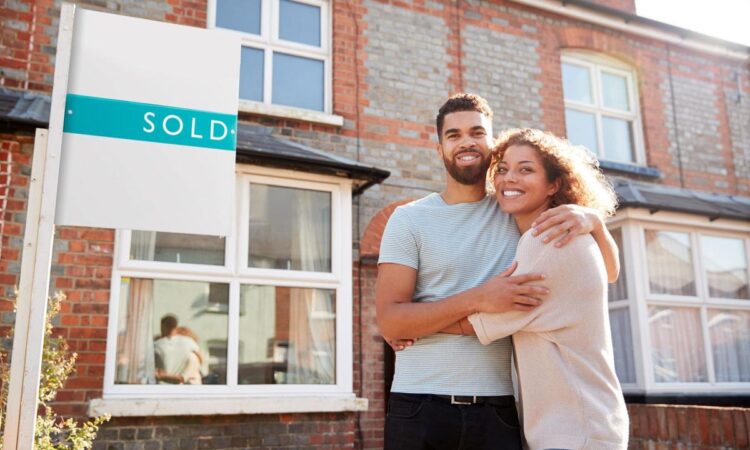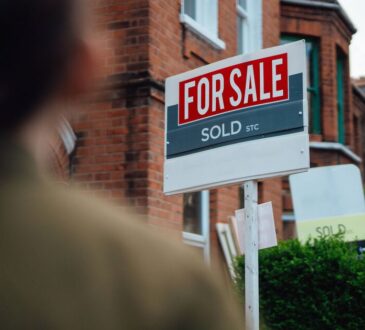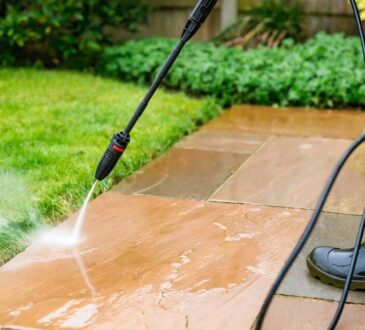
What should prospective homeowners look out for?


Monkey Business Images / Shutterstock
Despite rising mortgage costs and a cost-of-living crisis, home buyers in the UK appear unperturbed. Despite a 21% fall year-on-year, house sales reaching completion in 2023 were expected to reach 1 million, according to The Guardian. New research also suggests that an additional 41% of people who currently don’t own a home are hoping to buy in the next five years.
However, whether you’re one of the many keen prospective buyers or are taking a more considered approach, it pays to ask the right questions and do some research to avoid any unnecessary costs further down the line, says Uswitch mortgage expert, Kellie Steed. Read on for the questions all prospective home buyers should be asking on their viewings…
Before the viewing


2020 fizkes / Shutterstock
We all have a mental list of things we want in our new home and things we don’t, but often we can be swayed by one aspect of a house – a great location or unique features, for instance – so Uswitch recommends writing a list before you start viewing properties to help keep you grounded. It’s also really important to write down any deal breakers to remind you, should you have a very pushy estate agent.
How long has the property been on the market?


2020 William Barton / Shutterstock
According to data from Zoopla, it takes an average of 5 to 14 weeks for a UK property to receive an offer, so if the home has been on the market for longer than that, it’s worth asking the estate agent (and yourself) why. For example, is there something putting buyers off that could cause you a headache once you move in or make it tricky for you to sell the property down the line?
How long have the current owners lived there and why are they moving?


2019 Gorodenkoff / Shutterstock
Research from Statista suggests that homeowners who have a mortgage on their property stay put for an average of nine years. If the owner is selling before this then it might ring alarm bells. For example, perhaps the property is suitable for you now, but how about in a year or two when your household could potentially expand? However, do bear in mind that sometimes a home move has nothing to do with the property itself but a change in circumstances i.e. a relationship break up or a job offer elsewhere.
How old is the property?


2013 Konmac / Shutterstock
While period properties certainly have their appeal – indeed some say they really don’t build them like they used to – older properties are not without their problems. Old heating systems and properties that haven’t been well cared for could prove costly in terms of maintenance or energy efficiency, plus if your property is listed, you may be restricted in any renovations you wish to do, so it’s worth bearing in mind.
How much are the bills?


2022 Grusho Anna / Shutterstock
You’ve done your sums and worked out how much you can afford to borrow on your mortgage, but have you considered other costs? Though a bigger property might be tempting, will you be able to keep up with the utility bills?
How about hidden extras such as ground rent and service charges (particularly relevant for flats or leasehold properties)? The estate agent should know what council tax band the property falls under, otherwise, you can check the Government’s council tax website.
What are the neighbours like?


2022 Caftor / Shutterstock
You can usually gauge from the reaction of the estate agent whether the neighbours are nice or a little tricky, and their silence on the subject can be deafening. Though the current owner may not be in a rush to tell you about a problematic neighbour, according to the HomeOwners Alliance, if the seller has lodged any formal complaints against their neighbours, they legally have to tell you if you ask the question and they must be disclosed on the TA6 form.
Is there parking at the property?


2022 Bilanol / Shutterstock
If you’re a car owner then having parking near the property is probably quite important to you. Even if you don’t drive yourself, it’s useful to be able to offer parking to visitors, especially if you have elderly parents or rely on help with childcare. Ask the estate agent if there is off-road parking or restrictions nearby and whether permits are needed to help you make an informed choice.
Have there been any recent repairs or refurbishments?


2017 hanohiki / Shutterstock
Again, it’s useful to find out as much as you can about the property. Has the property been extended or required damp proofing or underpinning? Sometimes the nature of home renovations and works are cause for concern, but often it means the current owner has saved you a job. If major works have been carried out, make sure the correct permissions were sought and that it has been signed off by building regulations.
What is the property’s EPC rating?


Steed says that the EPC rating of a property – which shows how energy efficient your home is – is an important consideration. It will not only help you calculate how costly it will be to heat your home but increasingly, more of us are concerned about the impact our homes have on the environment. A good EPC rating will help you sleep better at night, both in terms of finances and ethics.
Is anything additional included in the sale?


2022 Dariusz Jarzabek / Shutterstock
Don’t assume the seller is going to leave the white goods in the kitchen or those gorgeous blinds you’ve seen in the living room. Some sellers have even been known to take carpets (though this happens rarely and is very much frowned upon). Steed says it’s important to establish what is staying and what is going early on so you can budget accordingly.
Are there any current planning applications approved in the local area?


2020 Carla Isabel A Nascimento / Shutterstock
Is there a lovely view from the property? Lucky you, but will it always be there? It’s worth asking whether there are any development plans that might affect you, either positively or detrimentally. A new-build estate that will obscure your view and create a lot more noise may not appeal, but perhaps an extension of a train line or a shopping mall will. Either way, it could affect future house prices, so it’s good to be informed.
Is there anything else I should know about this property?


2016 Monkey Business Images / Shutterstock
When you’re coming to the end of your viewing, ask the estate agent if there’s anything else you should know about. This puts the onus on them and the current owner to share anything that might be pertinent to the sale. If you don’t feel comfortable asking this on a first viewing, wait until you feel you are really keen on a property and ask on a second or third viewing, before you put in an offer.
Of course, there is only so much time to ask questions during a viewing, so while you walk around the property, look out for these other factors that could affect how you feel about the place…
What security features are there?


2023 Electrovenik / Shutterstock
Look out for security features, both inside and out. For instance, is the front door secure with a double lock, is there a burglar alarm, a CCTV system, or security lights? You might find it reassuring to see they are there and you won’t have to fit them yourself. Then again, you may start to worry about how safe the neighbourhood is if they’ve really gone to town!
What type of gas/electricity meter does the property have?


2021 Alex Yeung/Shutterstock
As you wander around, feel free to check the gas and electricity meters – though you may have to ask where they are – as changing from a pre-paid meter to a smart meter can be a bit of a fiddly job. Also, if the meters are old, this may mean they are not positioned to meet modern standards and moving meters at a later stage is pricier than you might think – according to Checkatrade, you could pay up to £700 to move a gas meter and £600 for an electric meter, plus labour.
How old is the boiler?


2018 BOKEH STOCK / Shutterstock
Is the boiler new or on its last legs? If it’s more than 10 to 15 years old and no longer under warranty then there is a real possibility it will have to be updated soon. According to Checkatrade, the cost of a new boiler supply and installation ranges between £2,000 and £4,000, so you’d need to make sure you could afford that if the current system packed up mid-winter.
What is the accessibility like?


2019 Graeme C / Shutterstock
If you have mobility issues or one of your close friends or family does, you might want to look at how accessible the front of the property is. Are there steep steps or are handrails installed to aid balance and support to anyone with additional needs? Even if no one in your close network needs it now, if this is a home you plan to live in for a long time, you might want to think about it for the future.
What is the surrounding area like?


2022 Clare Louise Jackson / Shutterstock
We all know what Kirsty and Phil say: location, location, location. When viewing the property, try to visit both at night and during the day to see if there’s a different vibe. If you like the property after viewing, it’s a good idea to go for a walk nearby and get a feel for the place and whether you would feel at home there.
What state is the property’s exterior in?


2019 Paul Maguire / Shutterstock
As well as inspecting the inside of the property, taking a look outside at the guttering, brickwork and roof tiles will help you see if there are any areas that look a bit neglected and that you might have to fork out to get fixed. Cracks in external walls could be a sign of subsidence, but even cracked window panes might suggest there could be a bit of a damp problem, so is worth investigating.
Does the property have a private garden?


2019 Simon Vayro / Shutterstock
The pandemic taught us all the value of having outdoor space, and whether you want a garden for the kids to run around in, a small patch to grow vegetables or a place to sit and watch the birds, if this is on your must-have list then don’t let it slide off. If the property you’re viewing does have a garden, check that it’s secure, private or shared, and whether any neighbours require through access i.e. to take their bins out in a row of terrace houses.
Do windows have double glazing?


2022 SrideeStudio / Shutterstock
Double glazing is a great way of conserving heat in a home and without it, you may find your heating bills go through the roof. Old, blown double-glazing with condensation between the panes isn’t great either, and you will probably want to update at some point. If that’s the case, give serious thought as to when you could afford to do this.
How much built-in storage is there?


2020 NataliaLavrivNedashkivska/Shutterstock
Finding space for everything in your new home can often be the trickiest thing to imagine. A general rule of thumb as any homeowner will tell you is that there is no such thing as too much storage, so look for built-in storage that will help you keep your home clutter-free and save you from having to buy too much furniture.
Are there enough plug sockets?


2021 Wirestock Creators / Shutterstock
We are very much in a digital age and though sometimes it’s nice to unplug for an hour or two, in reality, if you don’t have enough plug sockets, it will drive you mad. Check out the plug allocation as you walk around and, crucially, whether they are in the places you’ll need them i.e. either side of the bed or in an office nook. USB sockets can also be really useful, and though you can always employ an electrician to add more, it’s another outlay that would be nice to avoid.
Is there enough natural light?


2021 nikkimeel / Shutterstock
Research published by Science Direct suggests that the amount of natural light in our homes is linked to our perceived happiness. With this in mind, it’s well worth viewing any prospective homes in the daytime to see whether the rooms are light-filled or gloomy.
Take note of which way the property is facing to work out where the sun will come up and go down, determining which rooms will get the most light and when.
Are there any signs or damp or mould?


2014 Tom Gowanlock / Shutterstock
Rooms like bathrooms and kitchens are breeding grounds for damp and mould, so look for telltale signs such as black marks or stains on the walls and ceilings. Check whether these rooms are properly insulated and well ventilated. Both factors can lead to mould growth, which can have a detrimental effect on your health.
Are carpets and floors in good condition?


If you’ve done as we’ve suggested and checked that the carpets and floors are staying, then the next thing you’ll need to assess is what kind of condition they are in. Clean carpets and solid floors will make everything else feel and look better and if you’re not happy with either, then you might want to think about changing them before you move all your furniture in.
What’s the water pressure like?


Estate agent Simon Miller Company says one of its top musts when viewing a property is to check the taps. Simply turning on a tap in a bathroom or kitchen will give you an idea of the plumbing system and the water pressure. The company says, “Low water pressure means a bath will take longer to fill but it’s also worth noting that some modern appliances and showers will not work below certain water pressures. In some cases, low water pressure indicates a leak within the property.”
What is the crime rate in the local area?


2020 Matt_Turner / Shutterstock
Feeling safe going to and from your home, as well as when you are indoors, is crucial to a happy home life, particularly if you are buying on your own or raising a family in the area. You can find out local crime statistics by searching by postcode on the crime rate website. Not only will this (hopefully) put your mind at ease, but it will give you an idea of how easy it will be to sell your home at a later date.
How far is the property from local amenities and transport links?


2020 Jono Photography / Shutterstock
Local amenities may be a deciding factor for you when buying a property if you aren’t familiar with the area already. Is there a doctor’s surgery nearby (and are they registering new patients?), a local grocery store for essentials, or will you have to get in the car or jump on public transport every time you run out of milk? Other amenities that might be essential for you include nurseries, schools and train stations, so do research this before you commit to buying.
What’s the broadband speed and mobile coverage like?


2021 fizkes / Shutterstock
As we engage and socialise more on social media and work from home more, having good broadband and mobile phone reception is a must for most. Keep your phone on as you view a property so you can check phone coverage and don’t be afraid to ask about the current internet setup. You can even feed the postcode into an internet speed checker, such as this one from Which?, to see if it’s up to scratch.
If in doubt, get a second opinion!


Whether you’re buying your first home or have been on the property ladder for a while, it is a daunting task and it’s perfectly understandable to ask for help. Bringing along a trusted friend or family member to view properties with you will help give you an unbiased view. People who have lots of previous experience buying and selling homes are all too aware of the possible pitfalls, so their help can be a godsend.
If you see something that concerns you, ask the estate agent or seller if they mind you taking a photo and enlist the help of an expert after the viewing. No one expects you to know it all and it’s likely to be the biggest investment of your life so far.
Loved this? Follow us on Facebook for more home-buying tips and advice




